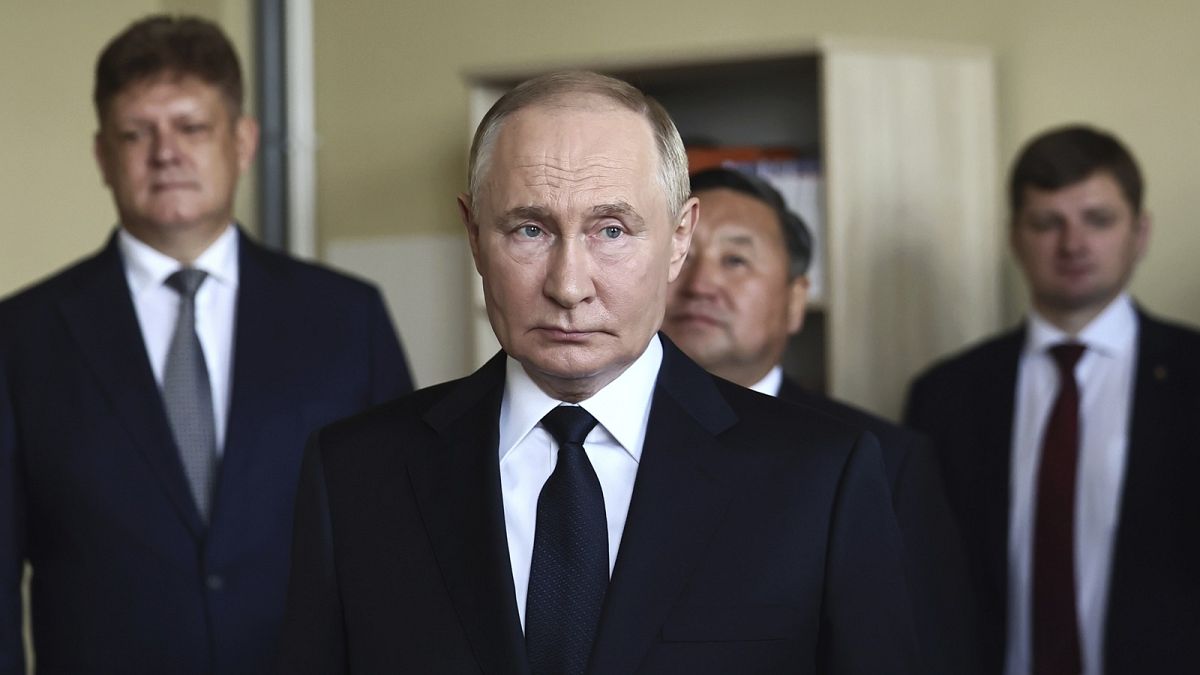Vladimir Putin has been accused of engineering the unlawful deportation and transfer of Ukrainian children to Russia.
The European Commission is calling on Mongolia to fulfill its obligations to the International Criminal Court (ICC) and place Vladimir Putin under arrest during his ongoing trip to the country.
“Mongolia is a state party to the Rome Statute of the ICC since 2002 with the legal obligations that it entails. We have raised our concern about the visit and stated our position of the ICC clearly via our delegation in Mongolia,” a Commission spokesperson said on Monday, referring to the treaty that underpins the tribunal.
“The EU supports the investigation by the prosecutor of the ICC in Ukraine and we call for the cooperation by all state parties.”
Putin’s visit represents the first time the Russian president has ventured into the territory of an ICC party since the court issued an arrest warrant against him over war crimes committed in Ukraine. A previous trip to South Africa, another state party, was cancelled following an international outcry.
Putin and one of his deputies, Maria Alekseyevna Lvova-Belova, are accused of being responsible for the deportation and transfer of Ukrainian children from occupied areas to Russia. The Kremlin has described the charges as “outrageous and unacceptable,” dismissing the ICC decision as “legally void.”
Russia is not a party to the Rome Statute.
By contrast, Mongolia is and is therefore expected to comply with the arrest warrants issued by the court. The Hague-based tribunal does not have the means to enforce its decisions and relies on state parties to provide the necessary resources, including by placing under arrest any suspect who sets foot on their soil.
Mongolia has made no indication that it would move ahead and fulfill the request during the high-profile visit, organised at the invitation of Mongolian President Ukhnaagiin Khürelsükh. The heads of state are expected to hold official talks on Tuesday and celebrate several milestones in bilateral relations.
The Kremlin’s spokesperson, Dmitry Peskov, previously said there were “no worries” about the trip. “We have a wonderful dialogue with our friends from Mongolia,” he said.
The ICC did not immediately reply to a request for comment.
Last week, an ICC spokesperson reminded Mongolia of its obligations under the Rome Statute and said that “in case of non-cooperation, ICC judges may make a finding to that effect and inform the Assembly of States Parties of it. It is then for the assembly to take any measure it deems appropriate,” without specifying the nature of those measures.
Human Rights Watch also weighed in on the debate, urging Mongolia to either deny entry to Putin or place him under arrest.
“Welcoming Putin, an ICC fugitive, would not only be an affront to the many victims of Russian forces’ crimes, but would also undermine the crucial principle that no one, no matter how powerful, is above the law,” said Maria Elena Vignoli, senior international justice counsel at Human Rights Watch.
The organisation noted that Mongolia was among the 94 countries that signed in June a joint statement declaring their “unwavering support” for the ICC after Prosecutor Karim Khan faced backlash for seeking arrest warrants against two Israeli officials, including Israeli Prime Minister Benjamin Netanyahu, and three Hamas leaders.
One of the sitting ICC judges, Erdenebalsuren Damdin, is from Mongolia.

